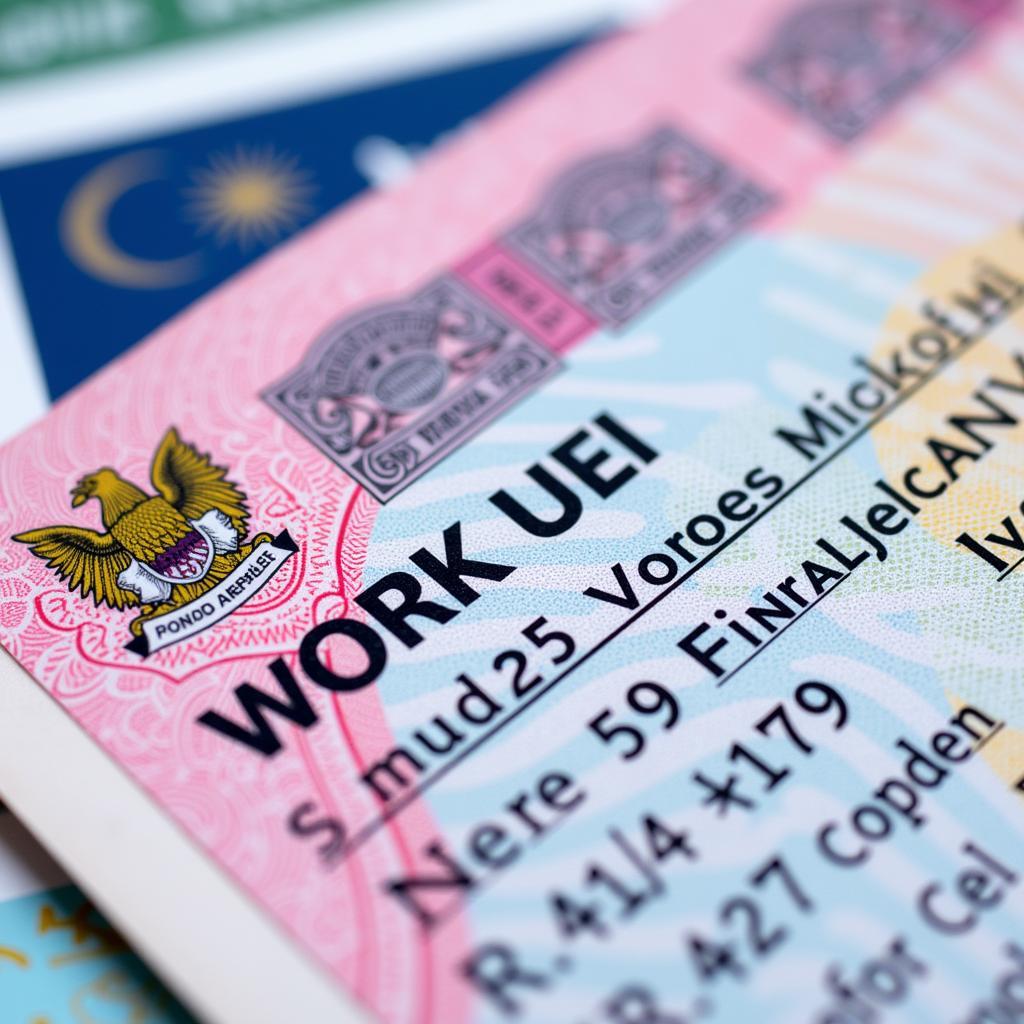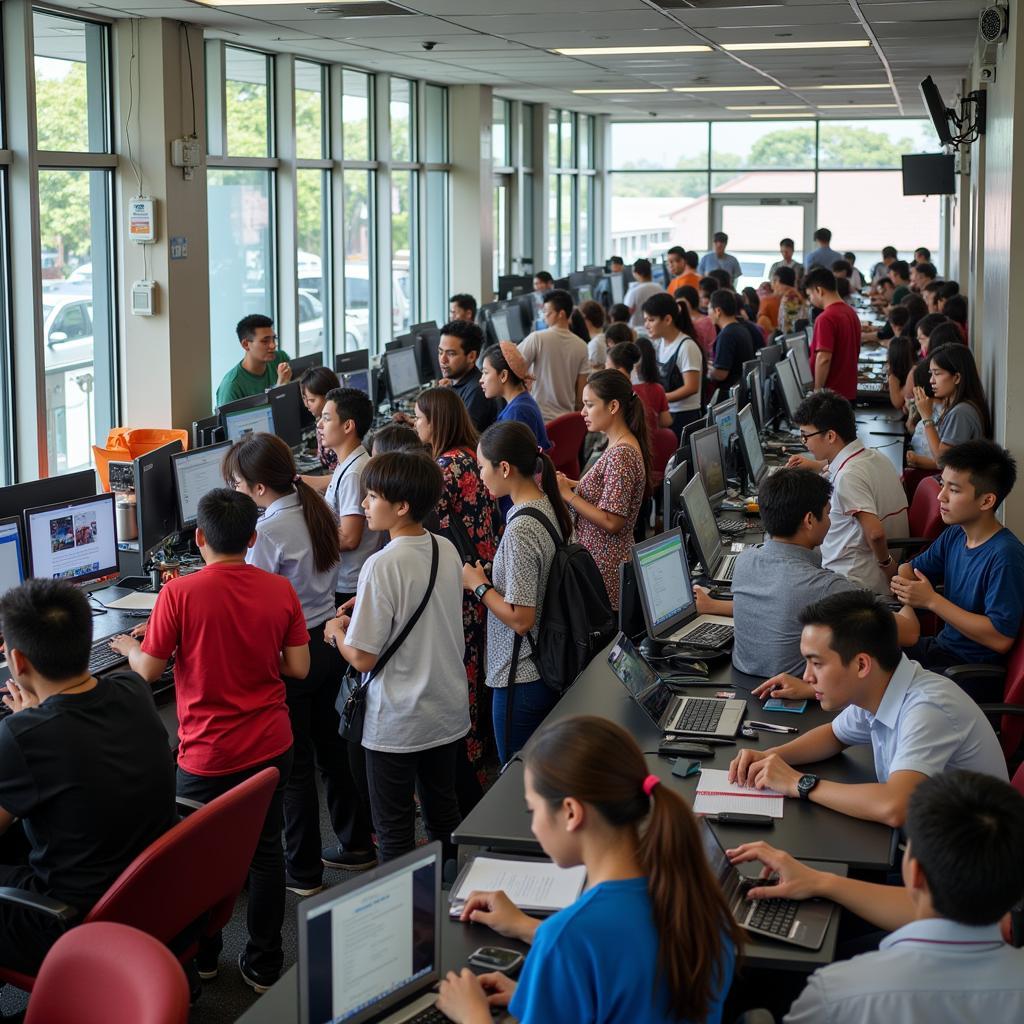The “Akta Pekerja Asing” or the Foreign Worker Employment Act is a crucial piece of legislation in Malaysia that governs the employment of foreign workers. This act, implemented in 1991 and later superseded by Act 635 in 2007, aims to regulate the influx of foreign labor and safeguard the rights of both employers and employees within a structured framework.
Navigating the complexities of the “Akta Pekerja Asing” is essential for businesses seeking to employ foreign workers and for foreign nationals aspiring to work in Malaysia. This comprehensive guide will delve into the intricacies of this act, providing clarity on its key provisions, procedures, and implications.
Why is the “Akta Pekerja Asing” Important?
The “Akta Pekerja Asing” is more than just a legal document; it’s the cornerstone of Malaysia’s foreign labor policy. Its significance lies in its ability to:
- Protect the Malaysian workforce: The act prioritizes the employment of Malaysian citizens, ensuring that the influx of foreign workers complements, rather than displaces, the local workforce.
- Regulate foreign labor supply: By establishing a clear legal framework, the act prevents exploitation and promotes fair employment practices for foreign workers.
- Ensure national security: The act mandates stringent background checks and security clearances for foreign workers, contributing to national security and social stability.
- Facilitate economic growth: By providing a legal avenue for employing foreign workers in sectors facing labor shortages, the act supports economic development and competitiveness.
 Malaysian Work Visa
Malaysian Work Visa
Key Provisions of the “Akta Pekerja Asing”
Understanding the key provisions of the “Akta Pekerja Asing” is essential for both employers and foreign workers:
- Eligibility for Employment: The act outlines specific criteria that foreign workers must meet to be eligible for employment in Malaysia, including age, health, and skillset.
- Employment Pass (Permit): Employers are required to obtain an Employment Pass from the Immigration Department for each foreign worker they intend to employ.
- Levy Payment: Employers are responsible for paying a levy for each foreign worker employed, with the amount varying based on the sector, duration of employment, and worker’s nationality.
- Accommodation and Healthcare: The act mandates that employers provide suitable accommodation and access to healthcare for their foreign workers.
- Protection from Exploitation: Provisions within the act protect foreign workers from exploitation, forced labor, and human trafficking.
- Contractual Obligations: The act outlines the contractual obligations of both employers and employees, ensuring a clear understanding of rights and responsibilities.
Navigating the Application Process
The process of employing a foreign worker under the “Akta Pekerja Asing” involves several steps:
- Employer Registration: Employers need to register with the Ministry of Home Affairs and obtain approval to employ foreign workers.
- Vacancy Advertising: Employers must first advertise job vacancies to Malaysian citizens before applying to employ foreign workers.
- Employment Pass Application: Employers must submit an Employment Pass application to the Immigration Department, along with supporting documents such as the employment contract, foreign worker’s passport, and levy payment receipt.
- Security Screening: All foreign worker applications undergo a thorough security screening process conducted by the Immigration Department.
- Visa Approval and Issuance: Upon successful verification and security clearance, the Immigration Department will approve and issue the Employment Pass.
Penalties for Non-Compliance
The “Akta Pekerja Asing” has strict penalties for non-compliance to deter illegal employment and exploitation:
- Employers: Employers found guilty of employing foreign workers without valid permits, breaching contractual obligations, or violating any provisions of the act face hefty fines, imprisonment, or both.
- Foreign Workers: Foreign nationals working in Malaysia without valid permits or engaging in activities not permitted under their visa conditions can be detained, deported, and blacklisted from future employment.
 Malaysian Immigration Office
Malaysian Immigration Office
Amendments and Updates
The “Akta Pekerja Asing” is a dynamic piece of legislation, undergoing periodic amendments and updates to reflect changing economic landscapes and address emerging challenges:
- Recent amendments: Recent amendments have focused on strengthening enforcement, increasing penalties for non-compliance, and streamlining the application process.
- Future considerations: The Malaysian government is continuously evaluating the act to ensure its relevance in addressing future labor market dynamics and global migration trends.
“Akta Pekerja Asing” and ASEAN Integration
The “Akta Pekerja Asing” plays a significant role in Malaysia’s engagement with the ASEAN Economic Community (AEC):
- Facilitating skilled labor mobility: The act, in conjunction with the ASEAN Comprehensive Investment Agreement (ACIA), allows for greater mobility of skilled labor within ASEAN member states.
- Promoting regional competitiveness: By providing a transparent and regulated framework for employing foreign workers, the act contributes to Malaysia’s competitiveness within the ASEAN region.
- Addressing labor shortages: The act enables Malaysia to address labor shortages in specific sectors by tapping into the regional labor pool.
FAQs about “Akta Pekerja Asing”
1. Which sectors are open to employing foreign workers in Malaysia?
The Malaysian government has designated specific sectors facing labor shortages that are open to employing foreign workers. These sectors typically include construction, manufacturing, agriculture, and services.
2. How long is an Employment Pass valid for?
The validity of an Employment Pass is typically tied to the duration of the employment contract, usually ranging from one to two years, and can be renewed subject to specific conditions.
3. Can foreign workers bring their families to Malaysia?
Bringing family members to Malaysia is subject to strict criteria and usually only applicable to high-skilled foreign workers after residing in Malaysia for a specific period.
Seeking Further Information?
Navigating the intricacies of the “Akta Pekerja Asing” can be complex. If you require further assistance or have specific questions, you can reach out to:
Hotline: 0369020373
Email: [email protected]
Address: Thon Ngoc Lien, Hiep Hoa, Bac Giang, Vietnam
Our dedicated customer service team is available 24/7 to provide guidance and support.
For more information on related topics, you may be interested in:
We strive to provide you with the most accurate and up-to-date information to navigate the legal landscape of employing foreign workers in Malaysia.
